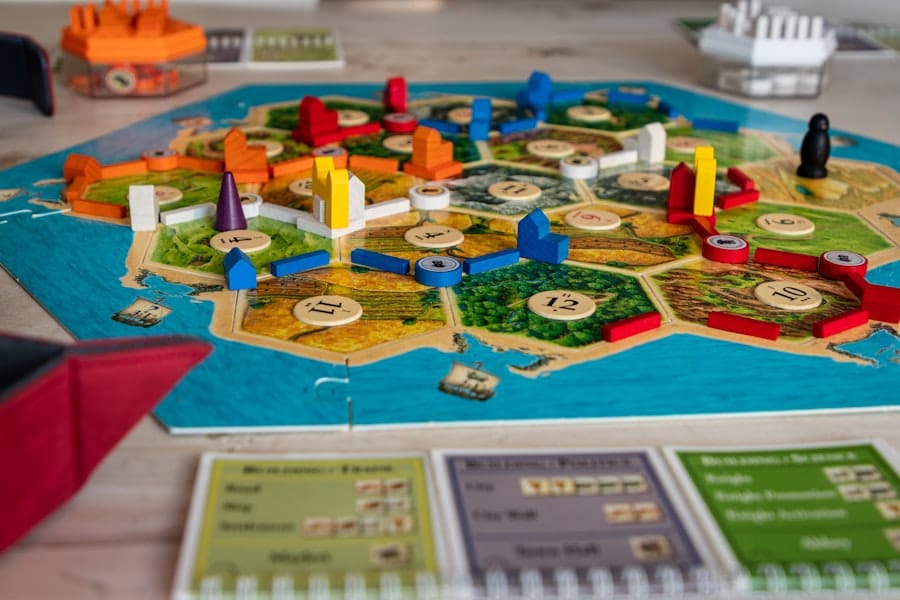Play-to-earn (P2E) economies represent a transformative shift in the gaming landscape, allowing players to earn real-world value through their in-game activities. Unlike traditional gaming models, where players invest time and money without any tangible return, P2E systems enable gamers to monetize their skills and efforts. This model is built on the premise that players can earn cryptocurrency or non-fungible tokens (NFTs) by participating in games, completing tasks, or achieving milestones.
The economic framework of P2E games often mirrors that of decentralized finance (DeFi), where players can trade, stake, or sell their in-game assets on various marketplaces. The appeal of P2E economies lies in their ability to democratize gaming. Players from diverse backgrounds can engage in these ecosystems, often without the need for significant upfront investment.
For instance, some games allow users to start playing for free, gradually earning assets that can be converted into cryptocurrency. This accessibility has attracted a global audience, particularly in regions where traditional employment opportunities are limited. As a result, P2E economies are not just reshaping how games are played; they are also influencing economic structures in various communities.
Key Takeaways
- Play-to-earn economies allow gamers to earn real money by playing video games, creating a new paradigm in the gaming industry.
- Blockchain gaming is on the rise, offering transparency, security, and ownership of in-game assets through the use of blockchain technology.
- NFTs are revolutionizing the gaming industry by allowing players to buy, sell, and trade unique in-game assets as non-fungible tokens on the blockchain.
- Decentralized finance (DeFi) is making its way into gaming, offering opportunities for players to earn interest and borrow against their in-game assets.
- Gamers have the opportunity to earn a living through play-to-earn economies, but they also face challenges such as market volatility and regulatory risks.
The Rise of Blockchain Gaming
The rise of blockchain gaming has been fueled by the increasing popularity of cryptocurrencies and the growing acceptance of decentralized technologies. Blockchain technology provides a secure and transparent framework for gaming, ensuring that players have true ownership of their in-game assets. This ownership is a significant departure from conventional gaming models, where game developers retain control over all assets and can alter or remove them at will.
In blockchain games, assets are tokenized and stored on a decentralized ledger, allowing players to trade or sell them freely. Several successful blockchain games have emerged, showcasing the potential of this new paradigm. Titles like Axie Infinity and Decentraland have garnered massive player bases and generated substantial revenue through their unique gameplay mechanics and economic models.
Axie Infinity, for example, allows players to breed, battle, and trade digital creatures called Axies, which can be bought and sold for real money. The game’s economy has created opportunities for players to earn significant income, particularly in countries like the Philippines, where many have turned to gaming as a primary source of livelihood.
NFTs and In-Game Assets

Non-fungible tokens (NFTs) play a pivotal role in the play-to-earn model by providing a mechanism for representing unique in-game assets on the blockchain. Unlike cryptocurrencies such as Bitcoin or Ethereum, which are fungible and can be exchanged on a one-to-one basis, NFTs are distinct and cannot be replicated. This uniqueness allows for the creation of rare items, characters, or skins within games, each with its own value determined by market demand.
Players can buy, sell, or trade these NFTs on various platforms, creating a vibrant secondary market. The integration of NFTs into gaming has led to innovative gameplay experiences. For instance, in games like The Sandbox and Cryptovoxels, players can create their own virtual worlds and monetize them through the sale of NFTs.
This not only empowers players to express their creativity but also incentivizes them to invest time and effort into building engaging environments. Moreover, the ability to own and trade these assets fosters a sense of community among players, as they collaborate and compete within shared ecosystems.
Decentralized Finance in Gaming
Decentralized finance (DeFi) is increasingly intersecting with gaming, creating new financial opportunities for players within P2E ecosystems. DeFi protocols enable gamers to leverage their in-game assets for various financial activities, such as lending, borrowing, or yield farming. For example, players can stake their NFTs or cryptocurrencies in liquidity pools to earn passive income while still retaining ownership of their assets.
This integration of DeFi principles into gaming not only enhances the economic potential for players but also adds layers of complexity to gameplay. The synergy between DeFi and gaming is exemplified by projects like Aavegotchi, which combines NFT collectibles with DeFi mechanics. Players can acquire Aavegotchis—digital pets represented as NFTs—and stake them to earn rewards in the form of cryptocurrency.
This dual functionality encourages players to engage more deeply with the game while simultaneously participating in the broader DeFi ecosystem. As these financial tools become more accessible within gaming environments, they are likely to attract a wider audience interested in both gaming and investment opportunities.
Opportunities for Gamers in Play-to-Earn Economies
The opportunities presented by play-to-earn economies are vast and varied, appealing to both casual gamers and serious investors alike. For many players, P2E games offer a chance to turn a hobby into a source of income. Gamers can earn cryptocurrency by completing quests, winning battles, or trading valuable items—all while enjoying the immersive experiences that these games provide.
This potential for financial gain has led to an influx of players seeking to capitalize on their gaming skills. Moreover, P2E economies have opened doors for professional gamers and content creators. Streamers and influencers can monetize their gameplay through sponsorships or by showcasing their skills in high-stakes competitions.
As the popularity of blockchain gaming continues to grow, so too does the potential for gamers to build personal brands around their gaming personas. This convergence of entertainment and entrepreneurship is reshaping how individuals approach gaming as a career path.
Challenges and Risks in Blockchain Gaming

Despite the promising prospects of play-to-earn economies, several challenges and risks must be navigated by both developers and players. One significant concern is the volatility associated with cryptocurrencies and NFTs.
This volatility can create an environment of uncertainty that may deter some gamers from fully engaging with P2E models. Additionally, the regulatory landscape surrounding blockchain gaming remains uncertain. Governments around the world are still grappling with how to classify cryptocurrencies and NFTs within existing legal frameworks.
This ambiguity can pose risks for developers who may face sudden changes in regulations that impact their operations or business models. Furthermore, issues related to security and fraud are prevalent in the blockchain space; players must remain vigilant against scams or hacks that could compromise their assets.
The Future of Play-to-Earn Economies
The future of play-to-earn economies appears bright as technological advancements continue to shape the gaming industry. As blockchain technology matures, we can expect more sophisticated games that offer deeper gameplay experiences while integrating economic incentives seamlessly. Developers are likely to explore innovative ways to enhance player engagement through immersive storytelling and dynamic worlds that evolve based on player interactions.
Moreover, as mainstream adoption of cryptocurrencies increases, we may see traditional gaming companies entering the P2E space. This could lead to hybrid models that combine elements of conventional gaming with blockchain features, appealing to a broader audience. The potential for cross-platform play and interoperability between different games could further enrich the P2E ecosystem, allowing players to transfer assets across various titles seamlessly.
Tips for Getting Started in Blockchain Gaming
For those interested in diving into the world of blockchain gaming, there are several key steps to consider before embarking on this journey. First and foremost, it is essential to conduct thorough research on different P2E games available in the market. Understanding the mechanics of each game, its economic model, and community feedback can help prospective players make informed decisions about where to invest their time and resources.
Setting up a digital wallet is another crucial step for anyone looking to participate in blockchain gaming. Wallets like MetaMask or Trust Wallet allow users to store cryptocurrencies and NFTs securely while providing access to various decentralized applications (dApps). Once a wallet is established, players can purchase cryptocurrencies from exchanges like Coinbase or Binance to fund their gaming activities.
Engaging with communities on platforms like Discord or Reddit can also provide valuable insights into the latest trends and developments within blockchain gaming. Networking with other players can lead to opportunities for collaboration or investment strategies that enhance one’s experience in P2E ecosystems. Finally, it is vital for newcomers to approach blockchain gaming with caution—starting small and gradually increasing involvement as they become more familiar with the landscape will help mitigate risks while maximizing enjoyment.
In the rapidly evolving world of blockchain gaming, the concept of play-to-earn economies is gaining significant traction, offering players the opportunity to earn real-world value through in-game activities. A related article that delves into the technological aspects of this trend is com/originally-launched-as-a-part-of-gawker-media-network/’>Originally Launched as a Part of Gawker Media Network.
This article provides insights into the broader digital landscape, which includes the rise of blockchain technologies and their impact on various sectors, including gaming. Understanding these technological advancements can offer a deeper appreciation of how play-to-earn models are reshaping the gaming industry and creating new economic opportunities for players worldwide.
FAQs
What is a play-to-earn economy in blockchain gaming?
A play-to-earn economy in blockchain gaming refers to a gaming model where players can earn real-world value through playing and participating in the game. This is made possible through the use of blockchain technology, which allows for the creation and exchange of digital assets with real-world value.
How does a play-to-earn economy work in blockchain gaming?
In a play-to-earn economy, players can earn cryptocurrency or other digital assets by completing in-game tasks, achieving certain milestones, or participating in the game’s ecosystem. These digital assets can then be traded or used within the game’s ecosystem, or exchanged for traditional currency.
What are the benefits of play-to-earn economies in blockchain gaming?
Play-to-earn economies in blockchain gaming offer several benefits, including the ability for players to monetize their gaming skills and time, the creation of new economic opportunities for gamers, and the potential for more inclusive and accessible gaming experiences.
What are some examples of play-to-earn games in blockchain gaming?
Some examples of play-to-earn games in blockchain gaming include Axie Infinity, Decentraland, and Gods Unchained. These games allow players to earn cryptocurrency or other digital assets through gameplay and participation in the game’s ecosystem.
What are the challenges of play-to-earn economies in blockchain gaming?
Challenges of play-to-earn economies in blockchain gaming include regulatory uncertainty, scalability issues, and the potential for exploitation or abuse within the gaming ecosystem. Additionally, the volatility of cryptocurrency prices can also impact the value of earnings for players.

